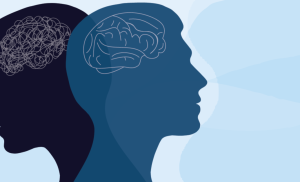Boost Cognitive Function By 40% With A 20-Minute Nap
Have you ever considered that taking a nap could actually improve your cognitive function by 40%? It may sound too good to be true, but recent research suggests that a 20-minute nap can do wonders for your brain. In today’s fast-paced world, where productivity is highly valued, finding simple and effective ways to boost cognitive function is crucial. So, if you’re ready to enhance your mental abilities and increase productivity, read on to discover the power of a short nap.
The Importance of Cognitive Function
How cognitive function impacts daily life
Cognitive function plays a crucial role in our daily lives. It encompasses a range of mental processes such as attention, memory, problem-solving, and decision-making. These functions are essential for us to effectively navigate through our daily tasks and challenges. Whether it’s studying for an exam, completing a work project, or even engaging in a casual conversation, cognitive function is at the core of our ability to perform these activities efficiently and effectively.
When our cognitive function is impaired, it can lead to a variety of negative consequences. Difficulties in concentration, memory recall, and problem-solving can make even the simplest tasks feel overwhelming. This can result in decreased productivity, increased stress levels, and overall reduced quality of life. Therefore, maintaining and improving cognitive function should be a priority for everyone.
The benefits of improving cognitive function
The benefits of enhancing cognitive function are far-reaching. Not only does it improve our ability to handle daily tasks more efficiently, but it also has significant positive impacts on other areas of our lives. Improved cognitive function can enhance our learning capabilities, boost creativity, and even enhance our overall well-being.
Moreover, a strong cognitive function is closely linked to better mental health. Studies have shown that individuals with higher cognitive function are less likely to develop cognitive decline and dementia-related conditions as they age. Additionally, individuals with good cognitive function have been found to have higher levels of happiness and life satisfaction.
Understanding Cognitive Function
Definition of cognitive function
Cognitive function refers to the mental processes that allow us to gather, process, store, and utilize information. It involves various complex processes, including perception, attention, memory, language, decision-making, and problem-solving. These functions are crucial for our ability to comprehend and interact with the world around us.
Different aspects of cognitive function
Cognitive function comprises several different aspects, each playing a critical role in our overall cognitive abilities. These aspects include:
- Attention: The ability to selectively focus on specific stimuli while filtering out irrelevant information.
- Memory: The capacity to encode, store, and retrieve information.
- Language: The ability to understand and use spoken and written language.
- Executive functions: Higher-level cognitive processes responsible for planning, organizing, and problem-solving.
- Visual and spatial skills: The capability to perceive, interpret, and manipulate visual and spatial information.
Understanding these various aspects of cognitive function allows us to identify areas that may require improvement and implement strategies to enhance our overall cognitive abilities.
The Science Behind Napping
The effects of sleep on cognitive function
Sleep has a profound impact on cognitive function. Research has consistently shown that a good night’s sleep plays a crucial role in memory consolidation, learning, decision-making, and problem-solving abilities. During sleep, the brain processes and organizes information, making it easier to retrieve and utilize knowledge and skills.
On the other hand, sleep deprivation has severe consequences on cognitive function. It impairs attention, decreases working memory capacity, and slows down reaction times. Lack of sleep can also negatively affect mood, creativity, and overall cognitive performance.
The benefits of napping
Napping, a short period of sleep taken during the day, has been found to have numerous benefits for cognitive function. A power nap, typically lasting between 10 to 30 minutes, can significantly improve alertness, concentration, and productivity. It provides a quick recharge for the brain, allowing it to process and consolidate information more efficiently. Napping has also been associated with improved memory recall, enhanced creativity, and reduced stress levels.
Furthermore, naps have been shown to have positive effects on mood regulation and emotional well-being. They can help alleviate feelings of fatigue, improve mood, and increase overall feelings of relaxation and contentment. Thus, incorporating napping into your daily routine can be a simple yet effective way to boost cognitive function and enhance your overall well-being.
Optimal Nap Duration
The recommended length of a power nap
The ideal duration for a power nap typically ranges from 10 to 30 minutes. This duration allows you to enter the first two stages of sleep, known as NREM (non-rapid eye movement) sleep, without progressing into the deeper stages of sleep. By avoiding deep sleep, you can wake up feeling refreshed and revitalized, without experiencing grogginess or sleep inertia, which can occur when waking up from deep sleep.
Research suggests that shorter naps of around 10-20 minutes can provide immediate improvements in alertness and cognitive function. However, if you have more time available, a longer nap of around 30 minutes can offer additional benefits, such as enhancing creativity and problem-solving abilities.
Factors influencing nap duration
The optimal nap duration can vary depending on individual factors such as age, sleep quality, and personal preferences. Younger individuals, in general, tend to experience quicker sleep onset and may benefit from shorter naps. Conversely, older individuals may require slightly longer nap durations to achieve the same cognitive benefits. Additionally, if you are experiencing sleep deprivation or have recently engaged in intense mental or physical activity, a longer nap may be needed to fully recharge.
It’s important to listen to your body and experiment with different nap durations to determine what works best for you. Pay attention to how you feel upon waking from different lengths of naps and adjust accordingly to find your optimal nap duration.
Creating a Perfect Environment for Napping
Finding a quiet and comfortable place to nap
Creating a conducive environment for napping is crucial to maximize its benefits. Find a quiet and comfortable place where you can relax and minimize distractions. Ideally, choose a location with low lighting or use an eye mask to block out bright light, as darkness promotes the release of melatonin, a hormone that helps regulate sleep.
If possible, find a space with a comfortable surface to lie down on, such as a bed, couch, or recliner. Make sure to use pillows or cushions to support your body and maintain a comfortable position. Eliminate any potential sources of noise or disruptions, such as turning off your phone notifications or using earplugs if necessary. By creating a serene and peaceful environment, you can enhance the quality and effectiveness of your nap.
Tips for creating a nap-friendly atmosphere
In addition to finding a quiet and comfortable place to nap, there are several other tips to create a nap-friendly atmosphere:
- Set an alarm: To avoid oversleeping and potentially disrupting your sleep cycle, set a gentle alarm to awaken you at the desired nap duration.
- Maintain a moderate room temperature: Choose a room temperature that is neither too hot nor too cold, as extreme temperatures can interfere with your ability to fall asleep and stay asleep.
- Use soothing sounds or music: Soft background noises, such as calming music or nature sounds, can help create a relaxing environment conducive to napping.
- Establish a consistent nap routine: Try to nap at the same time each day to train your body and mind to get in the nap mode more easily.
By implementing these strategies, you can optimize your environment for napping and ensure a more restful and rejuvenating experience.
Napping Techniques for Maximum Cognitive Boost
The power nap technique
The power nap technique involves taking a brief nap of around 10 to 20 minutes during the day to recharge and boost cognitive function. To maximize its effectiveness, follow these steps:
- Find a quiet and comfortable place to nap, as discussed earlier.
- Set an alarm for the desired nap duration.
- Close your eyes, relax your body, and focus on deepening your breathing.
- As you start to drift off, envision a peaceful and calming scene or repeat a calming phrase silently in your mind.
- Allow yourself to peacefully doze off, and when the alarm goes off, gently awaken from your nap.
By practicing the power nap technique consistently, you can experience increased alertness, improved concentration, and enhanced cognitive abilities throughout the day.
Utilizing meditation and relaxation methods
Incorporating meditation and relaxation techniques into your napping routine can enhance the cognitive benefits even further. Before your nap, take a few minutes to engage in deep breathing exercises or try a short mindfulness meditation session. These practices can help relax your mind and body, promoting a more restful and rejuvenating nap. Additionally, incorporating gentle stretches or practicing progressive muscle relaxation can further reduce muscle tension and contribute to a more relaxing nap experience.
Experiment with different techniques to find what works best for you and incorporate them into your regular napping routine. By combining napping with meditation and relaxation methods, you can maximize the cognitive boost and improve your overall well-being.
Enhancing the Benefits of Napping
Combining napping with nutrition
In addition to creating the perfect environment and utilizing napping techniques, nutrition also plays a vital role in enhancing the benefits of napping. Certain foods and beverages can support cognitive function and promote wakefulness after a nap.
Before napping, avoid consuming large meals or heavy snacks, as the digestive process can interfere with sleep. Instead, opt for a light and healthy snack that contains complex carbohydrates, such as whole grains or fruits, to provide a steady release of energy. Additionally, enjoying a small amount of caffeine before your nap can help counteract any grogginess upon waking up, as it takes around 20-30 minutes for caffeine to take effect.
After your nap, make sure to hydrate yourself by drinking a glass of water. Staying hydrated is essential for optimal cognitive function and can help fight off any lingering feelings of fatigue.
Incorporating physical activity for better cognitive function
Physical activity has been shown to have positive effects on cognitive function and can further enhance the benefits of napping. Engaging in light exercise, such as stretching or going for a short walk, before taking a nap can help increase blood flow to the brain, promoting alertness and mental clarity upon waking. Additionally, incorporating regular exercise into your daily routine has been linked to improved cognitive function, memory, and overall brain health.
By combining napping with physical activity, you can create a synergistic effect on your cognitive function, leading to better focus, productivity, and overall cognitive performance.
Napping as a Daily Routine
The ideal time of day for a power nap
Choosing the right time of day to take a power nap is essential to maximize its benefits. The ideal time for a power nap is usually during the mid-afternoon, between 1:00 pm to 3:00 pm. This period corresponds to the natural dip in our circadian rhythm, where many people experience a decrease in alertness and energy levels. Taking a nap during this time can help combat the post-lunch fatigue and provide a much-needed boost to get through the remainder of the day.
However, the ideal nap time can vary depending on individual factors such as sleep schedule, work obligations, and personal preferences. It’s important to find a time that works best for you and experiment with different nap durations and schedules to determine what provides the most significant cognitive benefits.
Scheduling naps for maximum effect
To make napping a regular and consistent part of your daily routine, it’s essential to establish a nap schedule. Aim to nap at the same time each day, as this helps program your body and mind to anticipate and prepare for the nap. Consistency is key when it comes to maximizing the cognitive benefits of napping.
When scheduling your nap, take into consideration any commitments or responsibilities that may interfere with your desired nap time. If you are unable to find a large window of time for a nap, consider implementing shorter “cat naps” of around 10 minutes throughout the day to supplement your cognitive function and keep you alert.
By incorporating napping into your daily routine and sticking to a consistent schedule, you can reap the full benefits of improved cognitive function and enjoy heightened productivity throughout the day.
Napping for Different Purposes
Napping for increased productivity
Napping strategically can significantly enhance productivity and work performance. Taking a short power nap during the day can revitalize your mind, improve focus, and increase alertness, enabling you to tackle tasks more efficiently. It can also help provide a mental break, allowing you to recharge and prevent burnout.
If you find yourself struggling with concentration or experiencing a mid-day slump, incorporating a well-timed nap can be a game-changer. By spending a few minutes napping, you can boost cognitive function by up to 40% and achieve a significant increase in productivity for the remainder of the day.
Napping for memory enhancement
Napping has been shown to have memory-enhancing benefits due to its impact on memory consolidation. During sleep, the brain processes and organizes information, reinforcing memories and improving recall. Napping, especially after learning something new, can aid in memory retention and consolidation.
For students or individuals engaged in learning-intensive tasks, incorporating napping as part of their study routine can have significant benefits. Napping after a study session can help solidify what has been learned and enhance long-term memory storage.
By strategically incorporating naps into your day, you can unleash the full potential of your cognitive abilities and experience noticeable improvements in productivity, memory, and learning capabilities.
Overcoming Obstacles and Establishing a Regular Napping Routine
Overcoming common barriers to napping
Despite the numerous benefits of napping, there are several common barriers that may prevent individuals from incorporating it into their routine. Some of these barriers include time constraints, perception of laziness, difficulty falling asleep quickly, and interruptions in a busy schedule.
To overcome these barriers, it’s important to first recognize and prioritize the importance of cognitive function and overall well-being. Napping should be viewed as a proactive and strategic tool to enhance productivity, rather than a sign of laziness. By reframing your perspective and valuing the cognitive benefits of napping, you can overcome any societal or personal obstacles.
Additionally, practicing good sleep hygiene can help overcome difficulties in falling asleep quickly. Establishing a consistent sleep schedule, creating a relaxing bedtime routine, and ensuring a comfortable sleep environment can all contribute to a more restful and efficient nap.
Tips for establishing a consistent nap schedule
Establishing a consistent nap schedule can be challenging at first, but with dedication and practice, it can become a seamless part of your daily routine. Here are some tips to help you establish a regular nap schedule:
- Start small: Begin by incorporating shorter naps of around 10 minutes and gradually increase the duration as you become more accustomed to napping.
- Experiment and observe: Pay attention to how different nap durations and times of day affect your mental clarity and alertness. Adjust your schedule accordingly to find what works best for you.
- Plan ahead: Allocate time in your daily schedule specifically for napping. Treat it as an important appointment that cannot be missed.
- Stay consistent: Aim to nap at the same time each day, even on weekends or days off. This consistency helps regulate your body’s internal clock and improves the effectiveness of your naps.
By persistently incorporating napping into your schedule and overcoming any obstacles, you can establish a regular routine that maximizes cognitive function and enhances overall well-being.
In conclusion, cognitive function is essential for our daily lives, impacting our productivity, mood, and overall quality of life. Napping can significantly boost cognitive function, improving alertness, concentration, and memory recall. By understanding the science behind napping, optimizing nap duration and environment, utilizing techniques for maximum cognitive boost, and incorporating napping into a daily routine, you can unlock the full potential of your cognitive abilities. Remember, napping is not a sign of laziness but a proactive and strategic approach to enhancing your cognitive performance and overall well-being. So, embrace the power of a well-timed nap and experience the remarkable benefits it can bring to your life.

















